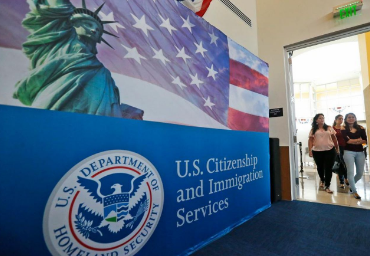On February 22, 2018, U.S. Citizenship and Immigration Services (USCIS) released a controversial memo designed to make it difficult (some say “impossible”) for professionals in H-1B status to provide services at the site of their employer’s customers. The USCIS “third-party placement” memo is one of a series of moves by the Trump administration to restrict the use of H-1B visas and, not surprisingly, it has resulted in litigation.
On May 1, 2018, Jonathan Wasden, an immigration attorney, filed the case of Small and Medium Enterprise Consortium (SMEC) v. DHS in the U.S. District Court, District of New Jersey. Wasden was a trial attorney in the Office of Immigration Litigation at the U.S. Department of Justice and an attorney in the USCIS Administrative Appeals Office (AAO).

Today, all major U.S. companies contract out for services in order to focus on their core line of business. Both the companies and their contractors are engaging in something economists consider beneficial to a well-functioning market economy – specialization. The limited availability of workers with certain technical skills has made such contracts even more important today.
The USCIS policy memo is seen by some as an attempt by the federal government (or at least some government officials) to tell companies how to organize their businesses and to specify which employees may provide services at customer sites. “Companies in the information technology (IT) services, management consulting, healthcare, and staffing fields are going to feel this change most acutely as it requires increased documentation to gain approval of an H-1B petition if the visa holder will work at a customer site,” Vic Goel, managing partner, Goel & Anderson, told me in an interview in March 2018. “In such cases, USCIS has indicated it will require employers to provide detailed documents proving their clients have confirmed an H-1B worker’s job duties, the degree requirement for that job, and how long the job will last.”
Goel noted the apparent intention of USCIS is to have a “chilling effect” on the relationship between companies and their clients. “Few clients will be comfortable weighing in on what an individual employee of a contractor will be working on and whether his or her job requires a specific degree. While it’s clear that USCIS intended to take aim at IT outsourcing firms with this change, its implications will be felt in other industries, and by investors and consumers in the long run.”
If the policy holds, one likely result will be a greater emphasis on shifting work outside the United States to overcome what employers and their customers perceive as U.S. government micromanaging of legitimate contractual relationships between companies.
Jonathan Wasden said a major part of the lawsuit rests on how Congress split authority over the H-1B visa category between the Department of Labor (DOL) and USCIS. He notes that each agency has well-defined roles but because of the USCIS third-party placement memo the two agencies now disagree about who is eligible to file for an H-1B petition. “Distilled to its essence,” he said, “this case presents the court with these questions: 1) Did Congress intend for the Department of Labor and USCIS to have diametrically opposed definitions of the same terms in the H-1B process? And 2) If not, which of these two agencies did Congress intend to delegate definitive authority to?”
https://www.forbes.com/sites/stuartanderson/2018/05/14/controversial-uscis-memo-draws-major-h-1b-lawsuit/#2fc9925a3519
Subscribe to Our Newsletter
Access insight, news and updates from across the Thomas V. Allen




 Appointment With
Appointment With